How can Artificial Intelligence become a productive team member in educational and cultural organizations? This workshop explores the possibilities and challenges of designing and integrating AI systems in such a way that they credibly emulate human roles, personalities, and behaviors and—equipped with specific knowledge and skills—participate productively in organizational work processes.
The focus is on two central questions:
How can human behavior patterns, personalities, and decision-making skills be modeled in such a way that they can be not only understood by AI systems, but also meaningfully and beneficially incorporated into daily work?
What opportunities for new, hybrid collaboration arise? How does work change when AI is no longer just a tool, but an active participant—a “team member”?
We explore the creative space at the interface between humans and machines: Which terms, structures, and semantic concepts enable collaboration between AI and human teams? What are common concepts, vocabulary, and codes – and where does the cultural uncharted territory that still needs to be explored begin?
We combine psychological and sociocultural approaches such as the Big Five, Sinus-Milieus, and narrative role profiles with practical “persona engineering,” AI architecture, and prompt design. The workshop shows how AI assistants can be designed through the interaction of these components and integrated into work processes—for example, as personas for target group dialogue, as mediators of data and knowledge, or as educational learning guides.
We want to put three very different types of AI to the test: Do they credibly embody what they claim to be? Are they up to the task? Are they useful? And do we want to work with them?
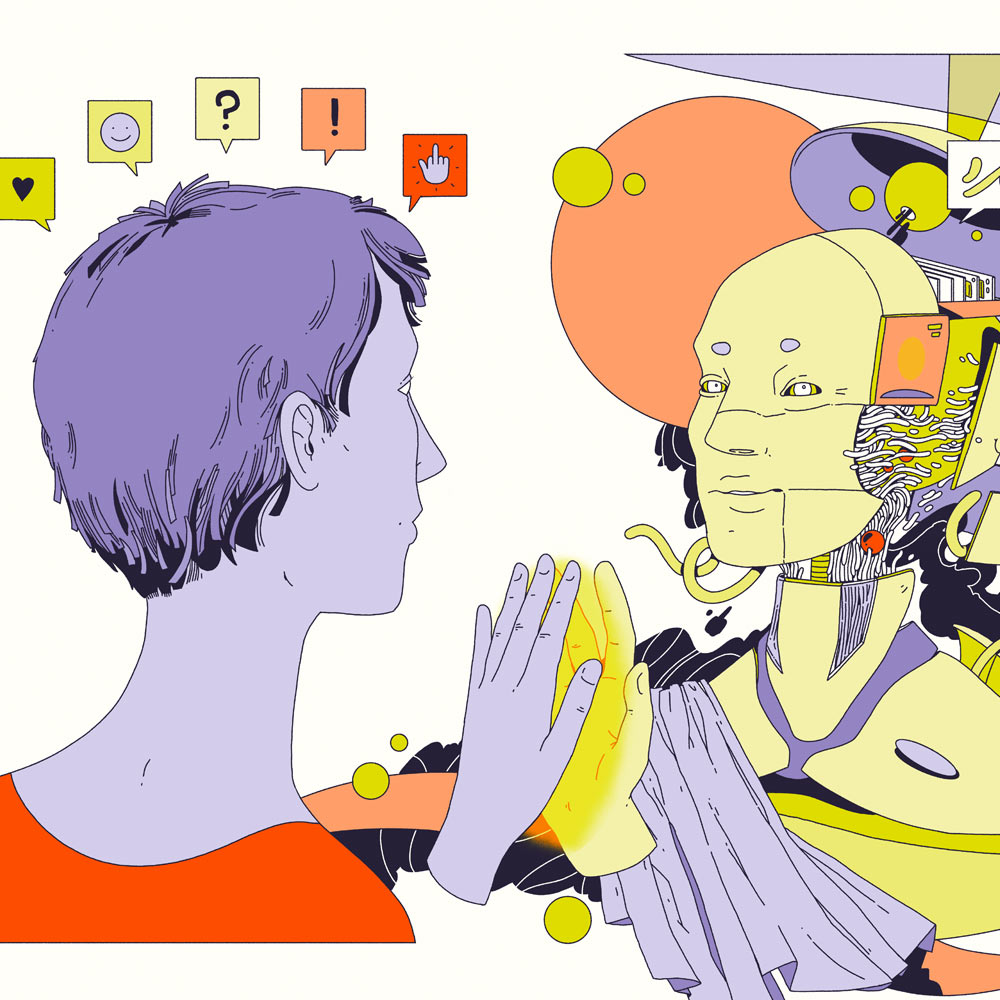
Photo: GfG / Gruppe für Gestaltung
Human-Machine Teamwork
AI Assistance for Effective Use in Organizations
Adrian Rudershausen (DE), Hanke Homburg (DE), Florian Ullrich (DE), Benjamin Buck (DE), Nils Penner (DE), Sylvia Amman (AT)
Language //
EN, DE
Ticket //
ONE DAY PASS, FESTIVALPASS, FESTIVALPASS+
Max. Participants //
30
Info //
Registration required / Registrierung notwendig Bring your own device. Wi-Fi will be available.
-
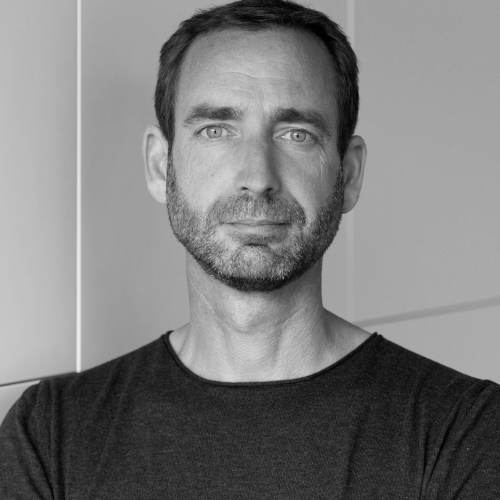
Photo: Adrian Rudershausen
Adrian Rudershausen
Adrian Rudershausen (Bremen, DE) has been supporting organizations in transformation and innovation processes as a researcher and consultant for 20 years. He is currently working in an interdisciplinary team to explore how AI can change the way we work as a cross-sectional technology—between opportunities, challenges, and responsibility.
-

Photo: Michel Iffländer
Hanke Homburg
Hanke Homburg, born 1968 in Bremen-Nord, studied graphic design in Bremen after working as a carpenter and illustrator. In 1994, he co-founded Gruppe für Gestaltung (GfG) and pursued cross-disciplinary projects in design, photography, and furniture. Today, he develops and oversees brand, and corporate communication projects and advises GfG clients on design strategy.
-
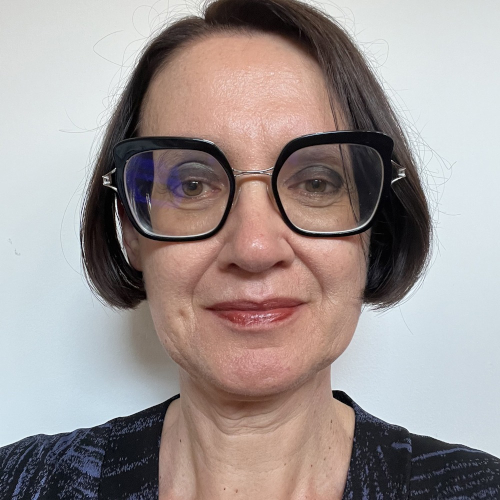
SylviaAmann.jpg
Sylvia Amann
Sylvia Amann is an international consultant for the cultural and creative industry. An expert in EU cultural policy and funding, she has led projects for Culture Action Europe and advises EU institutions. Since 2015, she has been serving on the European Capitals of Culture panel. In 2000, she founded her consultancy inforelais, offering project support and strategic development across Europe and beyond.
-
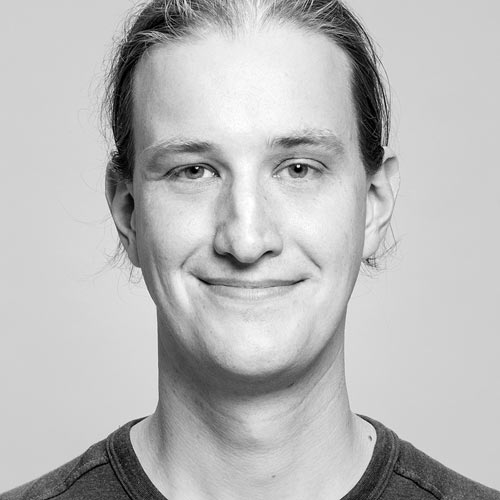
Photo: Michel Iffländer
Florian Ullrich
Florian Ullrich, born 1983 in Berlin, discovered web development through volunteer work during high school. After a year of social service and studies in media informatics in Dresden and Bremerhaven, he joined Gruppe für Gestaltung (GfG) in 2009. He trained as a media designer specializing in web and is now GfG’s lead web developer.
-
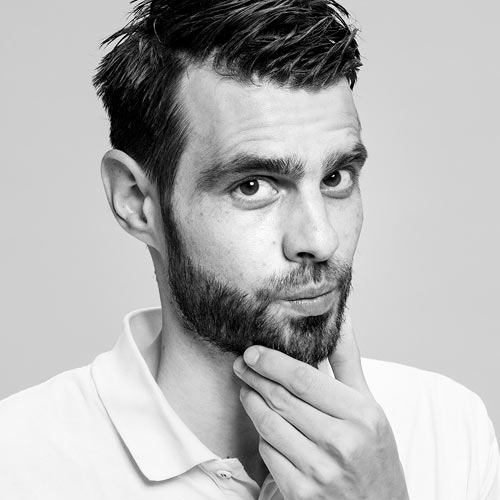
Photo: Michel Iffländer
Benjamin Buck
Born in Tübingen, Ben began his academic training in English and German studies at the University of Augsburg, building a comprehensive foundation in text composition, stylistic expression, research and didactics. His work at Studio Reich/Messerschmidt eventually led him to interdisciplinary media design with Gruppe für Gestaltung in Bremen. Today, he is a trained media designer and certified UX professional, focusing on digital branding through web development, AI integration, and sound design.
-

Photo: Michel Iffländer
Nils Penner
After studying Integrated Design, Nils worked as a graphic designer in the electronic music industry while transitioning to web development to meet the growing needs of clients. He pursued a music career as part of the duo Penner+Muder, which led to gigs from St. Petersburg to Guernica, as well as the legendary Panorama Bar in Berlin in 2008. After moving to the countryside, he returned to coding and now works as a full-stack web developer, focusing on sustainable and accessible web development.
Credits
Redaktur, GfG / Gruppe für Gestaltung